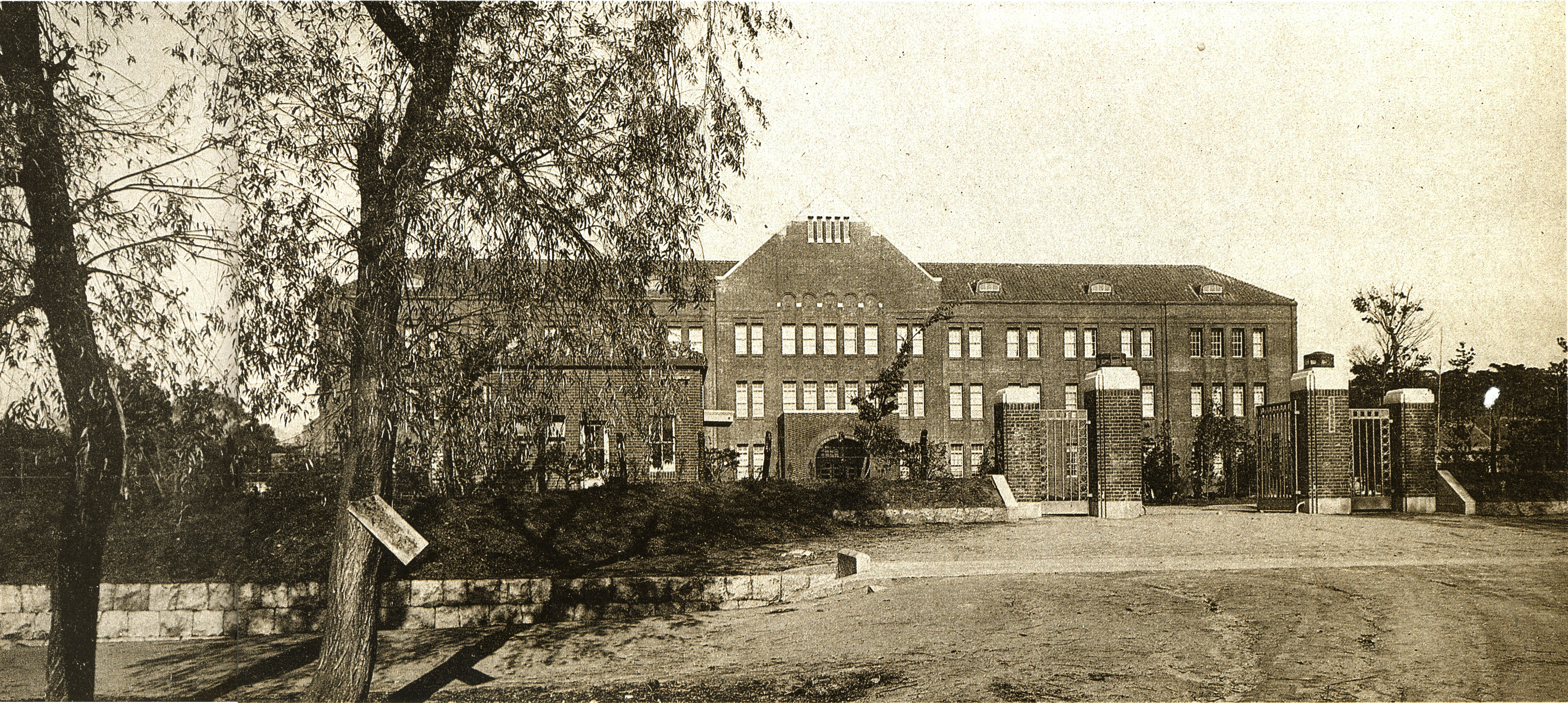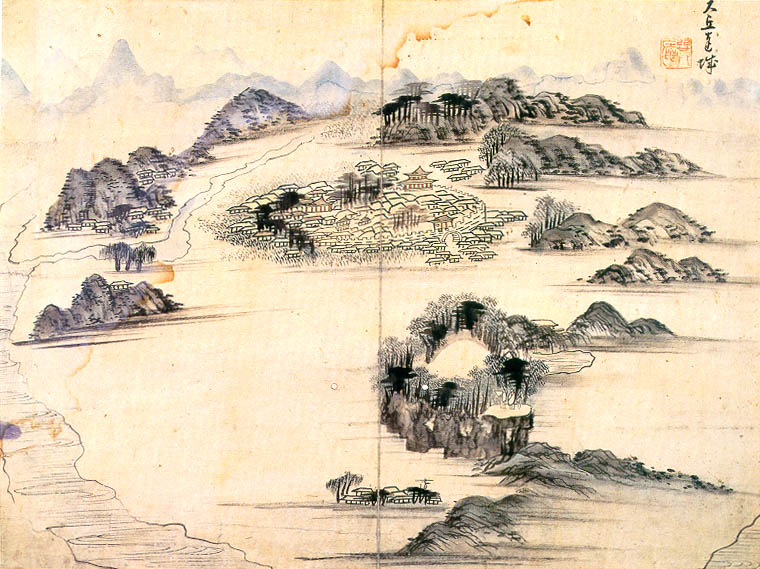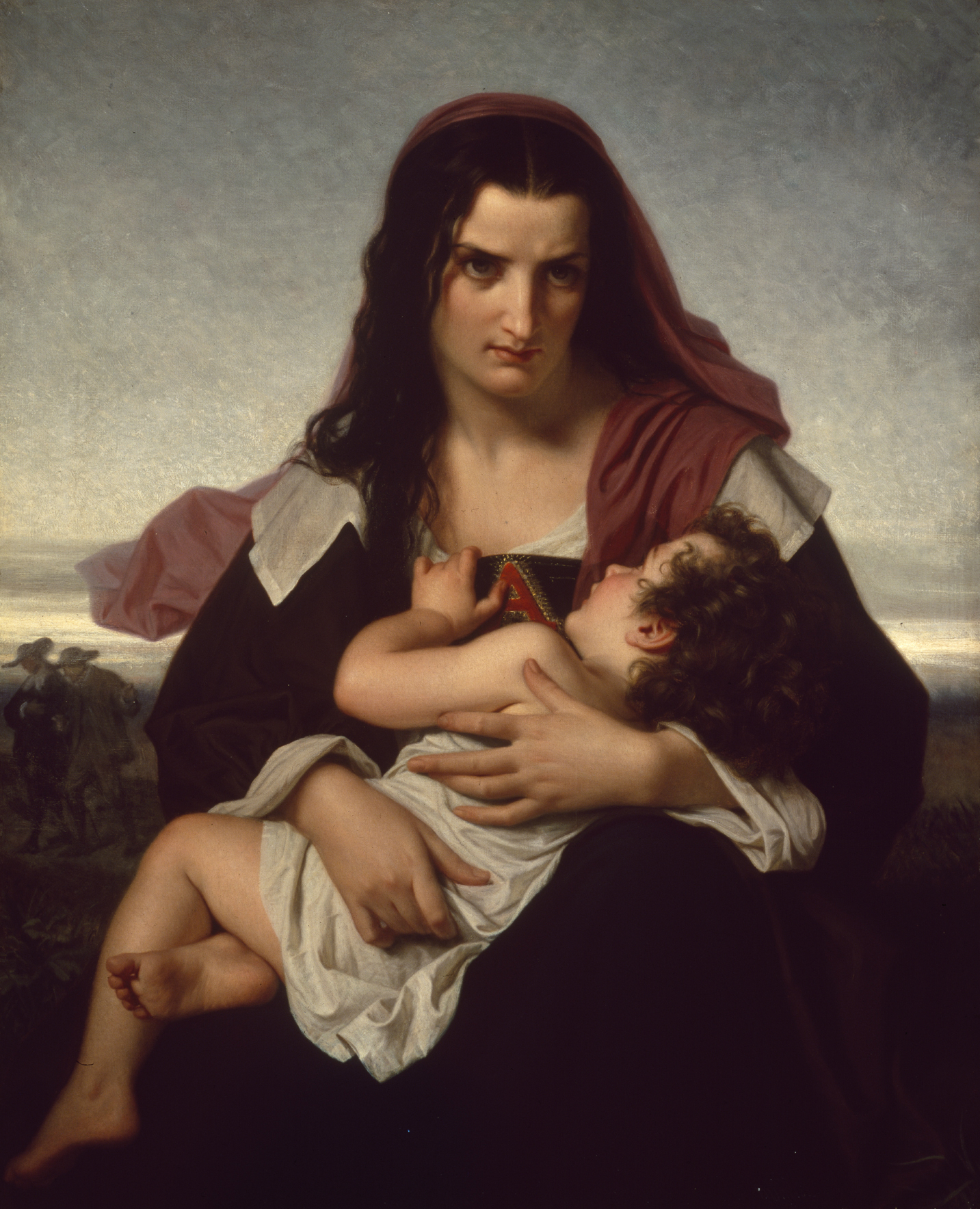|
Choi Jae-seo
Choi Jae-seo (Korean: 최재서; Hanja: 崔載瑞; 11 February 1908 – 16 November 1964) was a South Korean literary scholar, a critic of English literature, and a novelist. He graduated from Keijō Imperial University (currently Seoul National University), received his M.A. from the University of London, and later taught at Yonsei University. As editor-in-chief of the literary magazine ''Humanities Review'', he was a forerunner of progressive literary criticism. Although he later presided over pro-Japanese literary journals under pressure from the ruling Japanese, he undoubtedly remains an important figure in Korean modernism of the 1930s. Early life and education Choi was born on February 11, 1908, in Haeju, Hwanghae Province, Korea to wealthy parents, the only son in a family of four daughters. His father, Choi Kyung-tae, ran an orchard called Taeilwon, and became one of the richest men in the area. From an early age, Choi Jae-seo was an intellectual prodigy who showed gr ... [...More Info...] [...Related Items...] OR: [Wikipedia] [Google] [Baidu] |
Keijō Imperial University
, colloquially referred to as , was an Imperial University of Japan that existed between 1924 and 1946. This university was established in 1924 in Gyeongseong, known as Keijō during the period of Japanese occupation of Korea, now modern-day Seoul, South Korea. Keijō Imperial University was abolished by the United States Army Military Government in Korea (USAMGIK) in 1946, following the Japanese surrender to the Allies and the subsequent withdrawal of Japan from its occupation of Korea at the end of World War II. Keijō Imperial University was succeeded by the Seoul National University, which is today one of the flagship Korean national universities. History Keijō Imperial University was founded in 1924 as the sixth Imperial University of Japan during the period of Japanese rule, followed by Taihoku University, Nagoya University and Osaka University in 1928, 1931 and 1939, respectively. While the other Imperial Universities located in Japan were run by the Ministry of Educ ... [...More Info...] [...Related Items...] OR: [Wikipedia] [Google] [Baidu] |
Daegu
Daegu (, , literally 'large hill', 대구광역시), formerly spelled Taegu and officially known as the Daegu Metropolitan City, is a city in South Korea. It is the third-largest urban agglomeration in South Korea after Seoul and Busan; it is the third-largest official metropolitan area in the nation with over 2.5 million residents; and the second-largest city after Busan in the Yeongnam region in southeastern Korean Peninsula. It was overtaken by Incheon in the 2000s, but still it is said to be the third city, according to the "Act on the Establishment of Daegu City and Incheon City" (Act No. 3424 and April 13, 1981). Daegu and surrounding North Gyeongsang Province are often referred to as Daegu-Gyeongbuk, with a total population over 5 million. Daegu is located in south-eastern Korea about from the seacoast, near the Geumho River and its mainstream, Nakdong River in Gyeongsang-do. The Daegu basin is the central plain of the Yeongnam List of regions of Korea, regio ... [...More Info...] [...Related Items...] OR: [Wikipedia] [Google] [Baidu] |
Romanticism
Romanticism (also known as the Romantic movement or Romantic era) was an artistic, literary, musical, and intellectual movement that originated in Europe towards the end of the 18th century, and in most areas was at its peak in the approximate period from 1800 to 1850. Romanticism was characterized by its emphasis on emotion and individualism, clandestine literature, paganism, idealization of nature, suspicion of science and industrialization, and glorification of the past with a strong preference for the medieval rather than the classical. It was partly a reaction to the Industrial Revolution, the social and political norms of the Age of Enlightenment, and the scientific rationalization of nature. It was embodied most strongly in the visual arts, music, and literature, but had a major impact on historiography, education, chess, social sciences, and the natural sciences. It had a significant and complex effect on politics, with romantic thinkers influencing conservatism, libe ... [...More Info...] [...Related Items...] OR: [Wikipedia] [Google] [Baidu] |
Tendency Writing
{{disambiguation ...
Tendency or tendencies may refer to: * Seasonal tendencies, qualities of economic phenomena that appear to be related to the calendar * "Tendencies", a song by Hollywood Undead on the 2011 album '' American Tragedy'' * Tendency film, socially conscious, left-leaning films produced in Japan during the 1920s and 1930s See also * * * Tend (other) * Tendenz In higher criticism, the ''Tendenz'' of a literary work is its drift or bias, sometimes also the actual authorial intent. ''Tendenzkritic'' is the analysis of a work to determine its aim or purpose.Richard N. Soulen, R. Kendall Soulen (eds.), ''Ha ... [...More Info...] [...Related Items...] OR: [Wikipedia] [Google] [Baidu] |
Aldous Huxley
Aldous Leonard Huxley (26 July 1894 – 22 November 1963) was an English writer and philosopher. He wrote nearly 50 books, both novels and non-fiction works, as well as wide-ranging essays, narratives, and poems. Born into the prominent Huxley family, he graduated from Balliol College, Oxford, with an undergraduate degree in English literature. Early in his career, he published short stories and poetry and edited the literary magazine ''Oxford Poetry'', before going on to publish travel writing, satire, and screenplays. He spent the latter part of his life in the United States, living in Los Angeles from 1937 until his death. By the end of his life, Huxley was widely acknowledged as one of the foremost intellectuals of his time. He was nominated for the Nobel Prize in Literature nine times, and was elected Companion of Literature by the Royal Society of Literature in 1962. Huxley was a pacifist. He grew interested in philosophical mysticism, as well as universalism, addre ... [...More Info...] [...Related Items...] OR: [Wikipedia] [Google] [Baidu] |
Irving Babbitt
Irving Babbitt (August 2, 1865 – July 15, 1933) was an American academic and literary critic, noted for his founding role in a movement that became known as the New Humanism, a significant influence on literary discussion and conservative thought in the period between 1910 and 1930. He was a cultural critic in the tradition of Matthew Arnold and a consistent opponent of romanticism, as represented by the writings of Jean-Jacques Rousseau. Politically he can, without serious distortion, be called a follower of Aristotle and Edmund Burke. He was an advocate of classical humanism but also offered an ecumenical defense of religion. His humanism implied a broad knowledge of various moral and religious traditions. His book '' Democracy and Leadership'' (1924) is regarded as a classic text of political conservatism. Babbitt is regarded as a major influence over American cultural and political conservatism. Early career Babbitt was born in Dayton, Ohio, the son of Augusta (Darling) an ... [...More Info...] [...Related Items...] OR: [Wikipedia] [Google] [Baidu] |
Herbert Read
Sir Herbert Edward Read, (; 4 December 1893 – 12 June 1968) was an English art historian, poet, literary critic and philosopher, best known for numerous books on art, which included influential volumes on the role of art in education. Read was co-founder of the Institute of Contemporary Arts. As well as being a prominent English anarchist, he was one of the earliest English writers to take notice of existentialism. He was co-editor with Michael Fordham of the British edition in English of '' The Collected Works of C. G. Jung''. Early life The eldest of four children of tenant farmer Herbert Edward Read (1868-1903), and his wife Eliza Strickland, Read was born at Muscoates Grange, near Nunnington, about four miles south of Kirkbymoorside in the North Riding of Yorkshire. George Woodcock, in ''Herbert Read- The Stream and the Source'' (1972), wrote: "rural memories are long... nearly sixty years after Read's father... had died and the family had left Muscoates, I heard it ... [...More Info...] [...Related Items...] OR: [Wikipedia] [Google] [Baidu] |
Stephen Spender
Sir Stephen Harold Spender (28 February 1909 – 16 July 1995) was an English poet, novelist and essayist whose work concentrated on themes of social injustice and the class struggle. He was appointed Poet Laureate Consultant in Poetry by the United States Library of Congress in 1965. Early life Spender was born in Kensington, London, to journalist Harold Spender and Violet Hilda Schuster, a painter and poet, of German Jewish heritage. He went first to Hall School in Hampstead and then at 13 to Gresham's School, Holt and later Charlecote School in Worthing, but he was unhappy there. On the death of his mother, he was transferred to University College School (Hampstead), which he later described as "that gentlest of schools". Spender left for Nantes and Lausanne and then went up to University College, Oxford (much later, in 1973, he was made an honorary fellow). Spender said at various times throughout his life that he never passed any exam. Perhaps his closest friend and th ... [...More Info...] [...Related Items...] OR: [Wikipedia] [Google] [Baidu] |
Proletarian Literature
Proletarian literature refers here to the literature created by left-wing writers mainly for the class-conscious proletariat. Though the ''Encyclopædia Britannica'' states that because it "is essentially an intended device of revolution", it is therefore often published by the Communist Party or left wing sympathizers, the proletarian novel has also been categorized without any emphasis on revolution, as a novel "about the working classes and working-class life; perhaps with the intention of making propaganda". This different emphasis may reflect a difference between Russian, American and other traditions of working-class writing, with that of Britain. The British tradition was not especially inspired by the Communist Party, but had its roots in the Chartist movement, and socialism, amongst others. Furthermore, writing about the British working-class writers, H Gustav Klaus, in ''The Socialist Novel: Towards the Recovery of a Tradition'' (1982) suggested that "the once current er ... [...More Info...] [...Related Items...] OR: [Wikipedia] [Google] [Baidu] |
Hamlet
''The Tragedy of Hamlet, Prince of Denmark'', often shortened to ''Hamlet'' (), is a tragedy written by William Shakespeare sometime between 1599 and 1601. It is Shakespeare's longest play, with 29,551 words. Set in Denmark, the play depicts Prince Hamlet and his attempts to exact revenge against his uncle, Claudius, who has murdered Hamlet's father in order to seize his throne and marry Hamlet's mother. ''Hamlet'' is considered among the "most powerful and influential tragedies in the English language", with a story capable of "seemingly endless retelling and adaptation by others". There are many works that have been pointed to as possible sources for Shakespeare's play—from ancient Greek tragedies to Elizabethan plays. The editors of the Arden Shakespeare question the idea of "source hunting", pointing out that it presupposes that authors always require ideas from other works for their own, and suggests that no author can have an original idea or be an originator. When ... [...More Info...] [...Related Items...] OR: [Wikipedia] [Google] [Baidu] |
William Shakespeare
William Shakespeare ( 26 April 1564 – 23 April 1616) was an English playwright, poet and actor. He is widely regarded as the greatest writer in the English language and the world's pre-eminent dramatist. He is often called England's national poet and the " Bard of Avon" (or simply "the Bard"). His extant works, including collaborations, consist of some 39 plays, 154 sonnets, three long narrative poems, and a few other verses, some of uncertain authorship. His plays have been translated into every major living language and are performed more often than those of any other playwright. He remains arguably the most influential writer in the English language, and his works continue to be studied and reinterpreted. Shakespeare was born and raised in Stratford-upon-Avon, Warwickshire. At the age of 18, he married Anne Hathaway, with whom he had three children: Susanna, and twins Hamnet and Judith. Sometime between 1585 and 1592, he began a successful career in London as an ... [...More Info...] [...Related Items...] OR: [Wikipedia] [Google] [Baidu] |
The Scarlet Letter
''The Scarlet Letter: A Romance'' is a work of historical fiction Historical fiction is a literary genre in which the plot takes place in a setting related to the past events, but is fictional. Although the term is commonly used as a synonym for historical fiction literature, it can also be applied to other ty ... by American author Nathaniel Hawthorne, published in 1850. Set in the Puritan Massachusetts Bay Colony during the years 1642 to 1649, the novel tells the story of Hester Prynne, who conceives a daughter with a man to whom she is not married and then struggles to create a new life of repentance and dignity. Containing a number of religious and historic allusions, the book explores themes of Legalism (theology), legalism, sin and Guilt (emotion), guilt. ''The Scarlet Letter'' was one of the first mass-produced books in the United States. It was popular when first published and is considered a classic work of American literature. The novel has inspired numerous film, te ... [...More Info...] [...Related Items...] OR: [Wikipedia] [Google] [Baidu] |




.jpg)



